Soccer reform goal more than national success
Updated: 2015-03-04 07:50
By Li Yang(China Daily USA)
|
||||||||
China should learn from the United Kingdom's experience in developing soccer, Chinese President Xi Jinping told visiting Prince William on Monday. The British prince said he would welcome more Chinese players joining the Premier League.
Xi has openly expressed his interest in soccer, as well as his desire to see a stronger national soccer team, several times in recent years. The Chinese national team's ranking in the world, according to the International Federation of Association Football, has fallen from around 50th in 1990s to about 100th now. Even with a "golden generation" of players, China lost all three group matches without scoring a goal in its only appearance in the World Cup finals, the tournament jointly hosted by Japan and South Korea in 2002.
Last week, the top central leading body for reform, chaired by Xi himself, passed a guideline calling for soccer to be promoted in schools and market reform of the professional league. With China's top leader a soccer fan, it is to be hoped the reform plan can usher Chinese soccer into a new phase of development.
The malady of Chinese soccer is self-evident. Two year ago, several senior officials and football referees in the Chinese Football Association, a de facto football administrative center affiliated to the General Administration of Sports, were found guilty of corruption and power abuses. And dozens of players were charged for manipulating matches and gambling.
The rigid sports administrative system has led China's professional league astray, and the Chinese Super League is a hot-money game focused on quick success and instant rewards.
There are two major kinds of investors in China's football clubs, the resources and energy State-owned enterprises and real estate tycoons. The Chinese clubs simply repeat the development model of the clubs sponsored by the oil money in the Middle East, importing aging stars and big coaches from Europe and South America.
Although a club from Guangzhou won the Asian Champion League two years ago, the level of Chinese football remains low. In contrast, Japan and South Korea, two rivals of China on the pitch, have made stable progress and won their position in the world after decades of relentless efforts.
There needs to be a detailed action plan on how the reforms are to be implemented if they are to have the desired effect in cleansing and raising the level of the sport in China.
The government also needs to increase its input in soccer in schools and at the grassroots level. The number of young footballers in China is even less than in Vietnam and Thailand. Only three to four clubs out of the dozens of big clubs in China have comprehensive youth training programs.
Few parents want their kids to play soccer because of the corruption in the sport. If parents cannot be convinced that a soccer-playing child has a future, there is no future for Chinese soccer.
The Chinese Football Association also needs to be transformed into a responsible supervisor and service provider, instead of the almighty power it is now.
This will only be achieved if the sports administration system in China abandons its gold-medal mindset, so it pays more attention to promoting sports among the people.
To improve the performance of China's national soccer team, China should encourage more players to play in better foreign leagues, as Prince William said, rather than simply changing the national coach every couple of years.
And rather than seeing soccer as a cash cow to be milked, those that govern the game in China need to bear in mind it is a sport that should be enjoyed by players at all levels. Only in this way can Chinese soccer look forward to a winning future.
The author is a writer with China Daily.
liyang@chinadaily.com.cn
(China Daily USA 03/04/2015 page12)

 Volcano Villarrica erupts in southern Chile
Volcano Villarrica erupts in southern Chile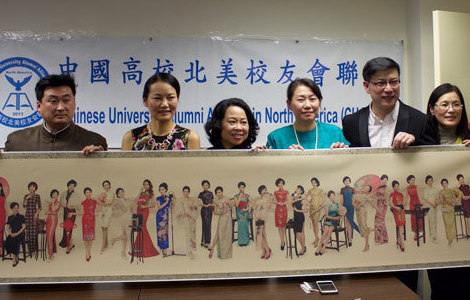
 All dressed up
All dressed up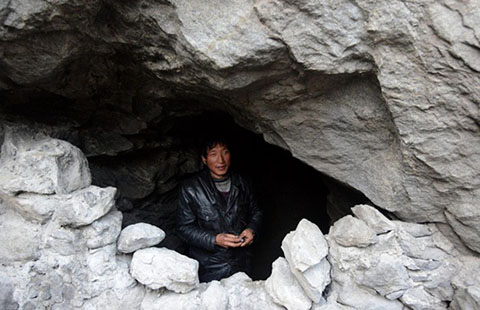
 Caveman saves money for family
Caveman saves money for family
 Buddhist monks break bricks in kung fu
Buddhist monks break bricks in kung fu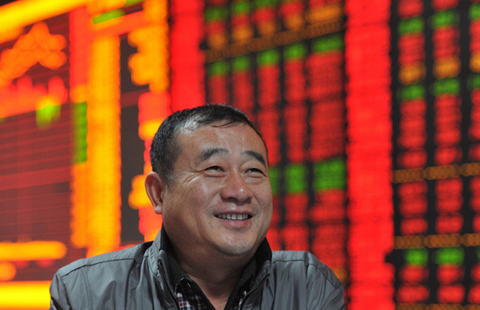
 China's interest rate adjustments beteen 2008 and 2015
China's interest rate adjustments beteen 2008 and 2015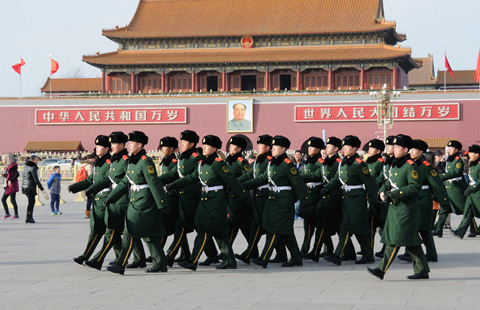
 Beijing steps up security for two sessions
Beijing steps up security for two sessions
 Han-style Chinese beauties at Cambridge
Han-style Chinese beauties at Cambridge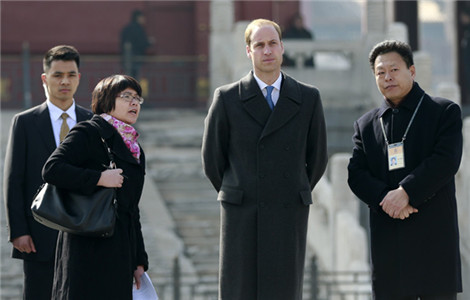
 Prince William visits Forbidden City
Prince William visits Forbidden City
Most Viewed
Editor's Picks

|

|

|

|

|

|
Today's Top News
China expects 10% rise in defense budget
Cybersecurity law 'makes sense'
US agents raids 'maternity hotels'
Netanyahu assails Iran-nuclear talks
US firms to lower China stakes in '15
Homeless man shot dead by police
China passes US at movie box office
Air pollution tops public concerns for two sessions
US Weekly

|

|







